You see this picture of Party Jollof Rice? Does it make you hungry? It made me v-e-r-y hungry. Have I successfully tortured you with images of food on an empty or close-to-empty stomach?
*growl*
I’ll take that as a “Yes.”
*evil grin*
You’re welcome!
I hope you had a fantastic weekend. Mine was okay. I can’t complain.
Here’s Part 3 of the current series, “The Day I Will Never Forget.”
Enjoy!
<<READ EPISODES 1 – 2>>
Episode 3: Revenge on a Plate of Party Jollof Rice
My illness kept me away from school for over a week. During that time, I made a most annoying trip to a local clinic where a nurse not only gave me several injections, but they sent me home with a take-away present: bitter medicine to be taken at prescribed intervals until I got better.
All this because I stood beside one yeye boy during assembly.
Why didn’t Miss Agbo catch mumps instead?
I never got an answer to that question. However, my stay at home covered the week-long mid-term break and a few more days. I was well enough to return to school the Tuesday after mid-term. Left to me, I would have extended my unprecedented holiday by another week, but my mother wouldn’t hear of it.
She practically kicked me out of the house and sent me back to school because in her words, she was “tired of babysitting a big boy.” She decided on her own, that I was past the “contagious stage” since I had enough energy and presence of mind to eat voraciously, watch cartoons and ask for permission to ride my bicycle.
In retrospect, I should have faked the illness for a few more days, but there was just one thing that restrained me: my birthday. It was on October 28, 1993, and I would be turning 7. I had no intention of spending my birthday at home drinking bitter medicine.
Where was the fun in that?
No, it had to be celebrated in the presence of my classmates.
My major concern, if there ever was anything I could be concerned about at that age, was whether I would be getting some sort of birthday party that year.
Every year, I begged and my parents routinely denied my request to celebrate my birthday twice: at school and at home.
As far as I was concerned, I deserved a double celebration.
My request usually consisted of the following items: party packs loaded with all sorts of goodies; party jollof rice, the kind that had been cooked over a slow, burning wood fire and had invariably absorbed the elements of fire, giving it that distinctive, smoky, “party rice” flavor that your tongue never forgets; fried meat or fried chicken, it didn’t matter which, as long as nobody made the mistake of replacing the protein of choice with a boiled egg of a guinea fowl, or chicken; dodo and everything else that could be squeezed into those famous foil containers, which were the bane of parties in the ’90s.
Maybe it was the ridiculous things I asked to be included in each party pack for my classmates such as BMX bicycles for each child including those terrible twins. How those bicycles would fit into each nylon bag along with assorted sweets and biscuits, was none of my business.
I made those requests every single year since I turned 5 and my parents unceremoniously denied them, laced with threats to desist from asking again or else they would send me to live with my grandmother in the village.
That usually worked. Until the next year when the cycle repeated itself.
But 1993 was different.
I had mumps that year, and as I was at that time, the youngest child of my parents, I was quite versed in getting them to do what I wanted. In my mind, saying “No” to my request just meant I might get it if I asked at another time.
Perhaps, my parents denied my request because it was not financially feasible for a salaried civil servant and a housewife to throw two complete birthday parties within days of each other for just one child.
But that was essentially what I wanted: a grand celebration in school to oppress my oppressors, and another one at home to terrorize the neighborhood kids.
Even though I was not thinking of money, my parents certainly were. However, during my mumps-induced stay-at-home, I was able to convince my mother, who in turn swayed my father, to accept the fact that I had just survived a life-threatening illness and that was worth celebrating.
Personally, I wanted to celebrate the fact that I had not been condemned to live with unfortunately-sized cheeks for the rest of my life.
My parents decided to let me, for the first time ever, have a double celebration within the constraints of their budget.
Of course my older brother, Nnamdi, complained about how my parents were treating me more favorably, but he swallowed any further protests when they promised a repeat performance for his upcoming 10th birthday.
In case you were wondering, they kept their word.
But this is not Nnamdi’s story.
Now, by the time I returned back to school, it was the week of my birthday. I came back on a Tuesday, and my birthday was on Thursday. Miss Agbo was the first person, Bright being the second, to inform me that the special assignment she had initially planned for mid-term had been postponed till further notice.
It was from Bright’s lips that I heard for the first time what the assignment would have been: a composition on the topic, “The Day I Will Never Forget.”
It appeared that the syllabus was not set in stone after all.
Who knew?
I was glad the assignment had been postponed and prayed even harder that it would be cancelled outright because I had nothing to write on the subject.
As I later discovered, thanks again to Bright who said little but listened more, that a total of about 10 students, including me, had caught Mumps. Most of these students were in Primary 2 and 3. Mrs. Aderinto, after an emergency staff meeting, had decided that it was better to move the mid-term break homework to a later date when everyone would have recovered.
So, instead of the composition, Miss Agbo had given our class a “fill-in-the-blank” Religious Studies assignment to do over the mid-term break. I was given till the end of that week to submit my homework due to my mumps-related absence.
Bright also informed me that while I was not the only person in Primary 3 to catch Mumps, I was the only one in our Primary 3 class to catch the disease.
Just my luck!
Now, because my birthday was on Thursday, my mother spent the preceding weekend buying all the necessary “party pack” items.
When I got home from school on Tuesday afternoon, I began to help her put them together.
First of all, the sweets. They were a mixture of toffee and hard candy of the “rot-your-teeth-quick-quick” variety, the kind which kept dentists in business all year round. Once you chewed them, they just inhabited the space between your teeth and refused to come out unless a toothbrush or chewing stick came to the rescue.
Second, the biscuits. My mother had thoughtfully purchased the two kinds of Okin biscuit. One set of students would get the sweeter, square, shortcake-like version, while the other students would get the round, “one-step-away-from-Cabin-biscuit” version, which to me, tasted like it was derived from powdered wood.
Third, the implements of our profession also went into the party pack: pencils, erasers, sharpeners. Not included were rubber bands and bits of paper which some wicked pupils turned into catapults and fired at unsuspecting classmates. Also not included were biros or pens as some folks called them, which we were not allowed to use until we got to Primary 4. Something else to look forward to.
There were no BMX bicycles either, but my mother let me know in advance that I could wear the suit and bowtie I had worn to a relative’s wedding earlier that year, to school for my birthday. That alone made up for the bicycle-less party packs.
So, there only remained one thing to sort out before the D-day: the food. And drinks.
In the end, my mother cooked the food indoors and using a special technique, she was able to get the smoky, “party jollof” flavor without touching any firewood. With the help of Nnamdi, myself and her younger sister, Auntie Nene, who was a university student, we packaged all the food in those coveted foil containers very early on Thursday morning.
Now, the food itself deserves a little attention as it concerns Miss Agbo and my revenge.
Although Miss Agbo loved, no obsessed over rabbits, she did not eat them. Never. On more than one occasion, she had told us that it was a taboo for people from her village to eat the fur-covered creatures. What I found surprising was that the elders, or the presumed preservers of tradition in Miss Agbo’s village, did not forbid the heartless display of rabbit-like creatures in front of innocent young children diligently pursuing an education in Lagos.
Oh no.
Apparently, these keepers of tradition or ancestors restricted their rules to the eating of rabbit meat, and not the display of rabbit pictures or the use of rabbit-themed memorabilia.
But, there was a silver lining in this cloud.
The rules that applied to the indigenes of Miss Agbo’s village, did not apply to others. Specifically, they did not apply to my family. As a matter of fact, in my village, rabbit meat was a delicacy and I grew up relishing the taste, which was superior to chicken.
So, when my mother, unaware of my classroom teacher’s dietary restrictions, asked me what I wanted to eat for my birthday, I innocently replied:
“Rabbit meat!”
My mother, possessing far more experience in the ways of the world than I was, ignored my specific request to cook rabbit meat for my entire Primary 3 class. Instead, we reached a compromise. She would make a special fried rabbit stew for family members only, and fried beef stew, “party style” of course, for my classmates.
And that is what she did.
At the top of each person’s serving of party jollof rice, neatly packaged of course in the foil plates, we placed a 2-by-2 inch piece of stewed beef beside a handful of diced, fried plantain, otherwise known as “dodo.” Then, each plate was sealed with a cover, which was made of paper on the inner part, and reflective foil on the outer side. Finally, each plate was crowned with a plastic spoon wrapped in serviette and secured to the top of the container with a bit of clear celotape.
As you can imagine, all this took hours to put together, and by the time I was leaving for school, my mother and aunt were not done packaging everything. They would arrive later and drop all the food in coolers to be devoured during break time.
The drinks were easier to handle. Two crates of soft drinks, or “minerals” as we called them, were purchased cold and put into crates with packs of straws.
Finally, the cake. My mother was acutely aware that although she was a wonderful cook, that “wonderful-ness” did not extend to baking. After her initial plan to get one of her friends to bake me a birthday cake fell through at the last minute – blame it on a broken oven – my father took matters into his own hands.
He ordered a cake from Mr. Biggs and picked it up on his way back from work on Wednesday afternoon. It was a simple chocolate cake, quite small and I wondered if everyone would get a piece.
But that concern was not strong enough to outweigh my other more pressing concern: my revenge on Miss Agbo.
I had thought of keeping her own plate of food away from her, but that was impossible. My mother had already given me advance warning that there would be two special packs of food: one for Miss Agbo loaded with extra pieces of meat and dodo, and another one of similar size with one major difference: my plate would have rabbit meat in it.
My birthday finally arrived. That Thursday morning, I came to school dressed in my navy blue three-piece suit, a red bowtie and black leather shoes specially polished by aboki, the mallam down the street.
My hair was another story altogether.
Although my father had told the barber to give me a Mike Tyson haircut, somehow his instructions were lost in translation. What I ended up with was what I can only describe as “gorimapa-miss-road.”
Most of my hair was shaved off and the little square patch in front was clearly left as an after-thought. Not even the sideways parting the barber added at the end could redeem the hair. I wanted to cry, but my father comforted me with these words:
“Ezekiel, you’re lucky o! When I turned 7, it was my uncle that cut my hair and in those days ehn, there was no clipper. He used razor blade and comb. By the time he finished, it was as if atilogwu dancers barbed my hair!”
I took comfort in his words, and counted myself lucky that I had been spared the horror of enduring a talentless relative cutting my hair.
That morning, my father took me to school, something my mother usually did. He took the cake and put it on Miss Agbo’s desk. The gateman, Mr. Sunday, helped my father carry the crates of soft drinks from the boot of his car to the classroom. We forgot the bottle opener in the excitement, and this mistake went undiscovered until break time. But, Miss Agbo came to the rescue when she pulled out her keychain, which had a small bottle opener attached to it.
After leaving these items in class, I went to the assembly ground.
Every morning, our headmaster, Mr. Aderinto would announce:
“If there’s any student celebrating his or her birthday today, please come forward.”
The student would then make his way to the stage, and possibly for the first and last time that year, ascend the stage to join the headmaster. Then, we would all sing, “Happy Birthday” to the celebrant. Afterwards, Mr. Aderinto would ask us to stretch out our hands towards the celebrant and pray a special blessing on him or her.
That day, everything went as expected. Mr. Aderinto asked if anyone was celebrating his birthday, and of course, I came out. I marched forward, heart thumping loudly in my chest, my legs a bit wobbly because I could feel a hundred pairs of eyes follow me as I climbed up the steps to join Mr. Aderinto on the stage.
After singing “Happy Birthday,” I knew the prayer was next. Instead of closing my eyes like the headmaster asked us all to do, I decided to keep mine open. Scared or not, I was not going to miss the opportunity to see for myself, what exactly happened during assembly when we were all supposed to be praying.
From my vantage position, I scanned the sea of faces and caught people in different stages of buffoonery: some students were vigorously picking their noses, a few trouble makers were either pinching students close to them or were in the process using rubber bands to fire rolled-up bits of paper at their classmates a few steps away.
In particular, I saw the twins, Funso and Funto standing side-by-side. Funso looked like he needed a haircut badly, and he had his eyes tightly shut and was supposedly mumbling a prayer. His sister, Funto, on the other hand, whose two-week old Kolese hair style was rough and in dire need of a replacement that would suit her round face, had both eyes wide open.
Instead of pointing towards me and praying for me, she had both palms spread open towards me in typical waka fashion, and her little face was contorted into a wicked smile. What I witnessed caught me off guard and I almost fell off the stage in shock.
First of all, I was surprised to see what Funto was up to.
Second, once she realized I had seen her, she did not enter what I like to call “repentance mode.” No. She changed gears and stuck out her tongue at me, aggressively pointing her palms at me in full waka mode.
I could feel heat rising in my belly and wished there was something I could throw at her. As I looked around for such an instrument, Mr. Aderinto suddenly shouted:
“In Jesus’ name.”
And everyone responded:
“Amen!”
There was nothing I could do at that point. As I descended the staircase intending to return to my previous spot on the assembly ground, Mr. Aderinto made a few announcements. Before I got to the bottom of the stairs, my eyes were drawn to someone waving to me from the school gate. It was my mother, accompanied by Auntie Nene. I knew then that the goodies were ready and prepared to go and meet them.
But first, I waited for assembly to end before going to look for Miss Agbo where she stood at the back of the assembly ground with the other teachers. She accompanied me to greet my mother, and with the help of Mr. Sunday and Auntie Nene, we took the cartons of party packs and two yellow coolers of packaged food.
All the students in my class got excited when they came from assembly and saw the cake and drinks already waiting in class. Their excitement went up several notches when the yellow coolers and party packs arrived.
A few “longer-throat” children who had never so much as said “How are you?” to me before, came to ask what type of food was in the cooler, to which I responded, “party jollof rice.” I could have mopped the drool from their mouths off the floor.
Some of them clapped their hands in glee while some other children grumbled that I should have brought hamburgers or at least fried rice instead. I told them they were lucky I didn’t bring eba and okra soup to class, at which point they became grateful indeed.
A few ajebotas also came and asked about the party packs. Specifically, they wanted to know if there were Digestives biscuits in the party packs because they were allergic to local biscuits.
What cheek!
If this question had been asked in the sand pit, I would gladly have pushed them down, one after the other, and watched with satisfaction as they toppled over like dominos.
But with Miss Agbo and my mother physically present in the class, that was not an option. I just told them they would soon see what was in the party packs.
My mother, before leaving, told Miss Agbo that she had kept her own food specially, and she thanked my mother profusely, showering her with all kinds of blessings. She also promised to make sure everyone got their share of the goodies. My mother gave Mr. Sunday a plate of food and a bottle of Coke, which he immediately opened with his strong set of molars.
She also made sure the headmaster, assistant headmistress and some other staff members, including Mama Dayo, the janitor, got their own share.
Earlier that morning, before leaving for school, my mother had told me that my own food was marked with a large “X” with a black, permanent marker, while Miss Agbo’s meal was marked with the letter, “Y.” This was Auntie Nene’s doing, but my mother had told me clearly:
“Ezekiel, listen to me. How many ears do you have?”
“Two, ma,” I replied.
“Hear me well,” she said, head cocked to one side, and one hand tugging at her own right ear as she spoke. “The container with “X” is for you ehn, and the one with “Y” is for your teacher, Miss eh … What’s that her name again?”
“Miss Agbo, Mummy.”
“Ehen. Agbo. What did I say?”
“X is for me, Y is for Miss Agbo, ma.”
“Good. Don’t mix them up. Or else, it’s bye-bye to your food. Don’t come home and be crying that your teacher ate your food o! I have told you now. X is for–”
“–Me.”
“–And Y is for who?”
“Miss Agbo.”
“Good boy.”
Very simple instructions, right? Yes, they were very simple and I had no intention of disobeying my mother.
But opportunity has a way of swallowing good intentions, and that is exactly what happened.
After my mother left, I approached Miss Agbo at her desk and reported Funto to her, thinking Miss Agbo would at least punish the girl.
For where?
Boy, was I wrong!
Miss Agbo actually threatened to deprive me of my own food on my birthday for telling lies against a classmate. And in her own words, “against a girl, for that matter.”
I was filled with rage. How could she do that to me, the celebrant? And she would still eat my cake?
What nonsense!
As I walked back to my seat, shoulders slumped, head bowed, I suddenly remembered my mother’s words:
“Don’t mix them up.”
That was it. My golden opportunity to get back at this traitor of a teacher.
As I brought out my Maths textbook for that morning’s lesson, the only thought on my mind was:
“Today, she will taste rabbit meat.”
The day went by very quickly. When the bell rang for break time, Miss Agbo called me to her desk. Before distributing every one’s food to them, she said:
“Ezekiel, your mummy said she kept my food specially. Where is it?”
I remembered:
“X is for me, Y is for Miss Agbo.”
Almost immediately, I remembered Funto saying waka to me during assembly.
So, when I opened my mouth the following words tumbled out:
“Auntie, your food is marked “X.” My mummy packed it specially for you.”
She smiled took the plate of food marked “X” and kept it aside for herself. Some minutes later, I watched in satisfaction as she swallowed not one but all three large pieces of rabbit meat. She even told me to say a special “thank you” to my mother for the delicious food.
I did not realize the extent of what I had done until the next day when I came to class and Miss Agbo was not there. Instead, another teacher, Mr. Adelaja took her place and he made a very troubling announcement to us.
“Your teacher, Miss Agbo, is very sick. I will be teaching you till she gets back.”
My legs turned to jelly and I could almost hear my teeth chattering.
“No, it can’t be,” I thought to myself. “It can’t be me.”
But the more I pondered the matter, the clearer it seemed to me: I was the one who caused Miss Agbo’s sickness.
What was I to do? Confess? My parents would kill me for sure.
No way. Nobody would ever find out the truth.
— to be continued —
<<READ EPISODE 4>>
*Picture Credit: Lohi’s Creations via Pinterest

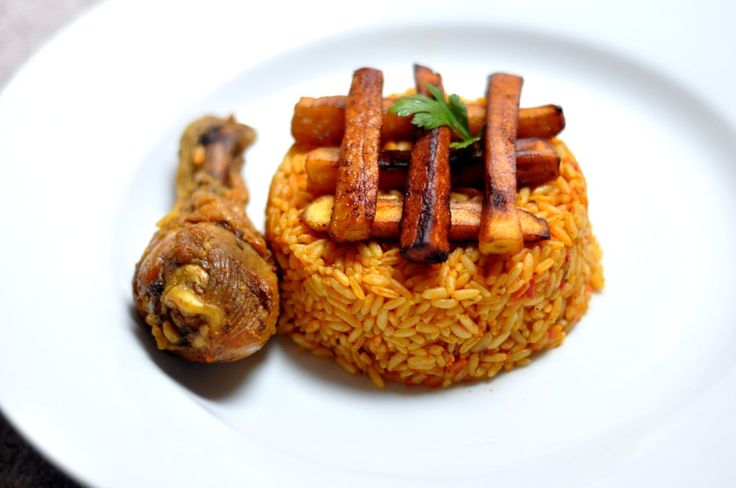


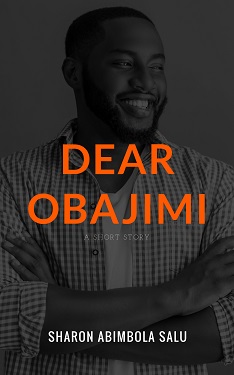
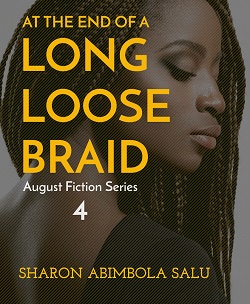


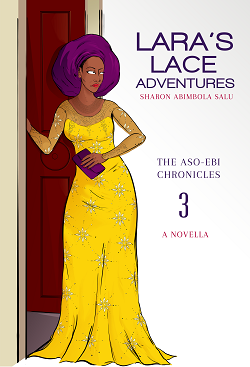
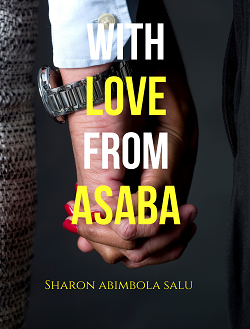
Great job Sharon. I was clapping my hands in glee at the end of the episode. I’m loving the story so far. I doubt if Miss Agbo’s sickness was caused by the rabbit meat though. I look forward to finding out in the next episode.
Abiona: Haha! E be like say you don see advance copy of the next episode. We’ll just wait and see if you’re right 😀
I’m glad you enjoyed this episode. Thanks for following this series and commenting. I really appreciate it. 🙂
My dear Sharon,
This atilogwu dance that you do with words is delightful! I really must commend the brilliance of your writing.
Hmmm, I don’t know how you did it, but you managed to freeze the memories of childhood in the 90’s so perfectly. This post made me laugh and laugh, but it also made me nostalgic for my wonderful childhood. Primary school was fun! School birthdays were really something! 😀
Meanwhile, Ezekiel haba! “Today, she will taste rabbit meat.” What if Ms Agbo is the secret priestess of the rabbit shrine in her village?
Thank God I read this post while eating my dinner, imagine the torture of craving party jollof rice, with its distinctive firewood flavour, at nearly 9pm, on an empty stomach! Lol
Nedoux: Lol @ Atilogwu dance with words. I really appreciate the kind words, and you already know how I feel about your mastery of words. One word: clever. 😀
Sounds like you’re a child of the ’90s too! Yipeee! Nostalgia is partly what I was going for, so thank you for confirming it. 🙂 Makes me think I got something right.
And oh my goodness! ROFL @ Miss Agbo being the priestess of a rabbit shrine!!! That cracked me up so much! Hehehe! If rabbits have a shrine and/or priestess, then anyone who harasses them is in serious trouble. Beware Bunny (meat) lovers!
You were eating dinner? Don’t worry. Next time, we’ll work on timing. This mouthwatering picture cannot be in vain. *evil grin*
Thanks for stopping by!